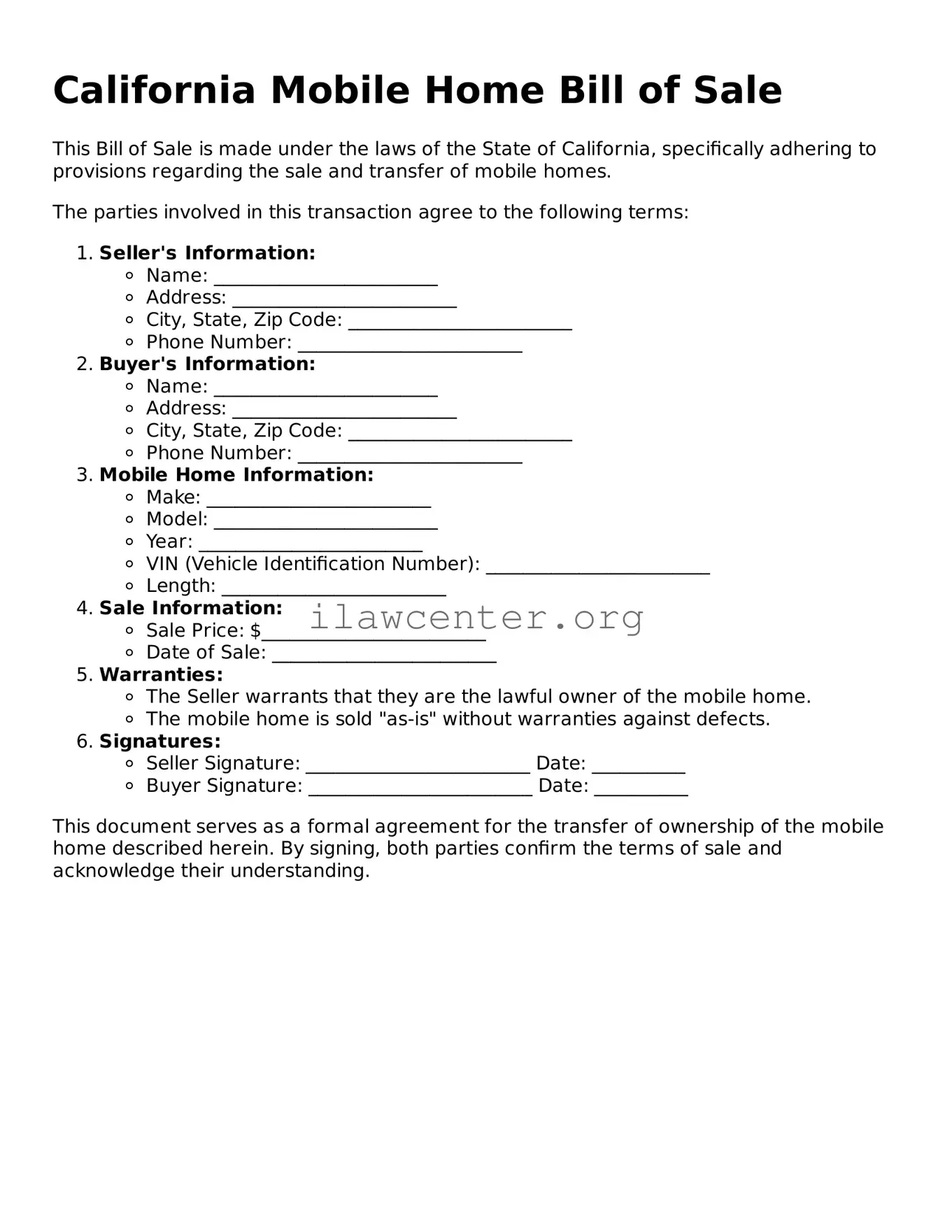Instructions on Utilizing California Mobile Home Bill of Sale
Once you have acquired the California Mobile Home Bill of Sale form, you can proceed to fill it out accurately. This form is essential for documenting the sale or transfer of ownership for a mobile home. Below are the steps to ensure that the form is completed correctly.
- Begin by entering the date of the transaction at the top of the form.
- Provide the name and address of the seller. This includes the seller's full name, street address, city, state, and ZIP code.
- Next, enter the name and address of the buyer in the designated section, ensuring to include the same details as the seller.
- In the description section, include the make, model, and year of the mobile home. Also, list the vehicle identification number (VIN) if available.
- Move on to fill in the sale price of the mobile home. Be clear about the amount being exchanged.
- Both the buyer and seller should then sign and date the form in the appropriate boxes provided. Signature validates the agreement.
- Lastly, make sure to keep a copy of the completed form for your records.
Once you have filled out the form, both parties should review it for accuracy. Retaining a copy will serve as important documentation in case of future disputes or for registration purposes.
